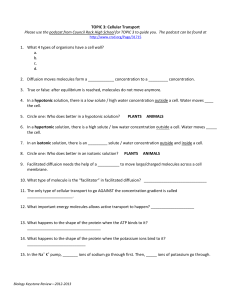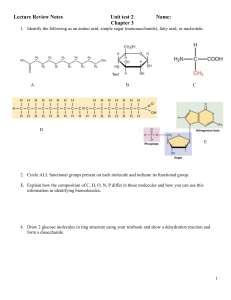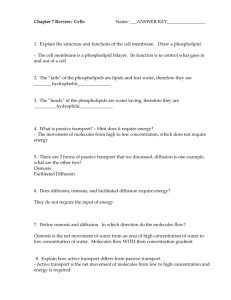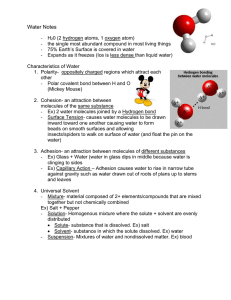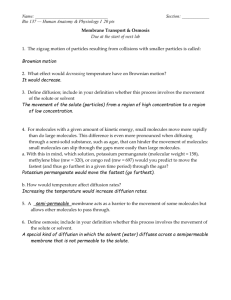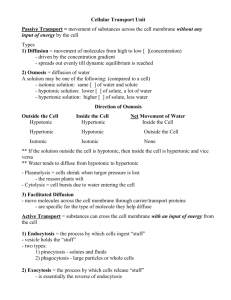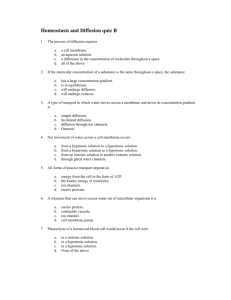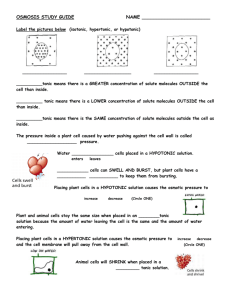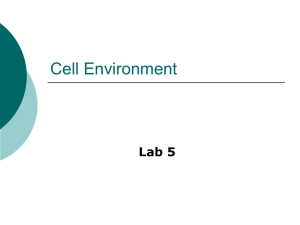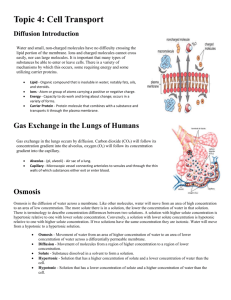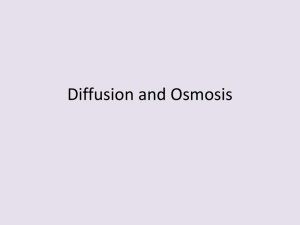Cell Structure and Transport Review
advertisement
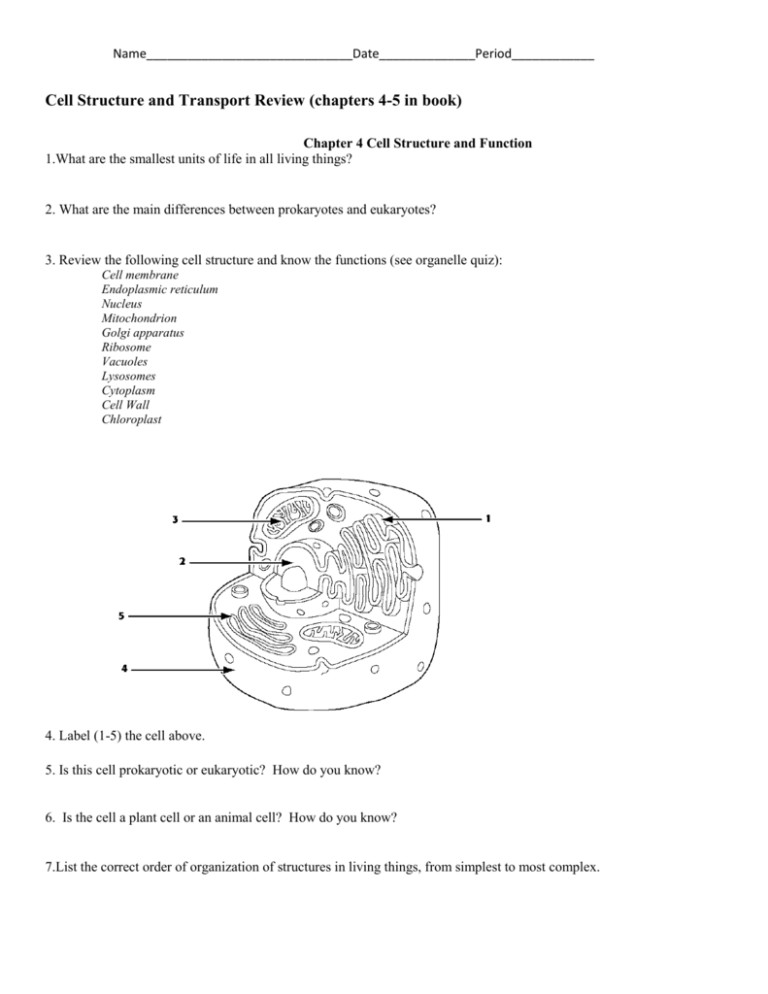
Name______________________________Date______________Period____________ Cell Structure and Transport Review (chapters 4-5 in book) Chapter 4 Cell Structure and Function 1.What are the smallest units of life in all living things? 2. What are the main differences between prokaryotes and eukaryotes? 3. Review the following cell structure and know the functions (see organelle quiz): Cell membrane Endoplasmic reticulum Nucleus Mitochondrion Golgi apparatus Ribosome Vacuoles Lysosomes Cytoplasm Cell Wall Chloroplast 4. Label (1-5) the cell above. 5. Is this cell prokaryotic or eukaryotic? How do you know? 6. Is the cell a plant cell or an animal cell? How do you know? 7.List the correct order of organization of structures in living things, from simplest to most complex. Name______________________________Date______________Period____________ Chapter 5 Cell Transport 1. .Refer to the illustration above. Which cell (1, 2, 3, 4) is most likely to lose both water molecules and solute molecules? 2. Refer to the illustration above. In this system, where would the solute molecules in cell 2 are most likely move? 3. .Refer to the illustration above. Which scenario would the direction of water molecules most likely to diffuse? 4. During your lab, when I dropped food coloring in a beaker of water, what example was I showing? 5. Sugar molecules are big and cannot directly enter cells. What process uses carrier proteins to help larger molecules pass into the cell? 6. Why is the sodium-potassium pump important to your body? Explain the process. (pg 103-104) 7. Give 3 examples of passive transport. (Section 5-1 pgs. 97-100) 8. Give some examples of active transport? (uses ATP) (section 5-2 pgs.103-106) 9. What is endocytosis? What are 2 examples of endocytosis? 10. What is exocytosis? 11. What is ATP? What does it do for your body? Name______________________________Date______________Period____________ Practicing Writing GOOD Essays (use vocabulary words from Ch 5) 26. Why is it dangerous for humans to drink ocean water? Write your answer in the space below. (Think of this at a cellular level in your body. Think of solute concentrations and the terms: osmosis, hypertonic, hypotonic, and isotonic) 27. Distinguish the difference between passive transport and from active transport. Give examples of each. Write your answer in the space below. 28. Why do supermarkets spray water on their produce? (Think of this process at a cellular level in the plant produce. Think of solute concentrations and the terms: osmosis, hypertonic, hypotonic, and isotonic.) Name______________________________Date______________Period____________
